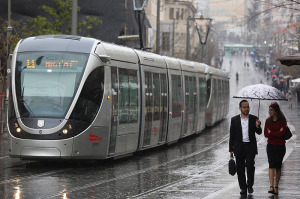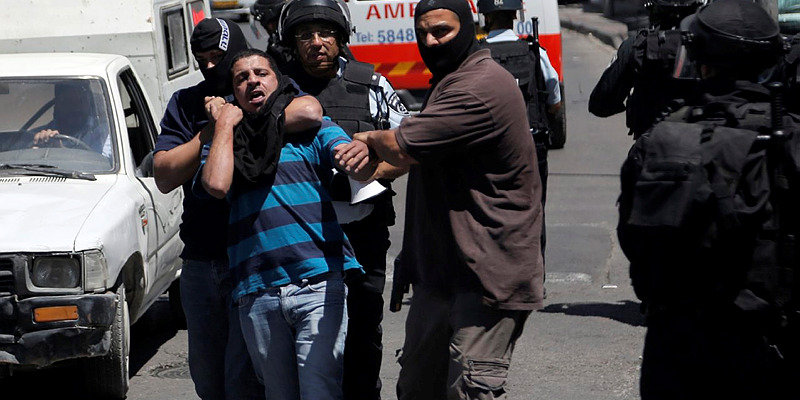Jerusalem police are stepping up their efforts to stop the incessant wave of rock-throwing terror in the capital.

Jerusalem’s light-rail system. (Photo: Nati Shohat/Flash 90)
Jerusalem has been suffering in the past several months from a surge in attacks perpetrated by Arab terrorists throwing rocks and Molotov-cocktails at Israeli civilian targets, particularly at the light-rail trains running through the city.
The attacks on the train line are costing millions of shekels in damage and bringing down the number of available cars by 40 percent. This cutback in services affects Israeli and Arab residents alike.
Police have established a taskforce, have deployed Special Forces and are incorporating new methods to quell the wave of terror.
Three Arab residents of Beit Hanina in eastern Jerusalem were caught throwing rocks at a train. Police used an UAV (Unmanned Aerial Vehicle) to track their actions and then to guide the intercepting forces that arrested them.
Since the beginning of July police have apprehended over 100 terrorists suspected of targeting the light-rail infrastructure. Last week an officer spotted an Arab teenager picking up a bottle, preparing to throw it at the train. The officer disembarked and arrested him before he had a chance to attack.
“We view the attacking of the light rail system with much severity,” a police spokesperson said. “Many courses of action are being taken to track down, arrest and bring to justice the rioters. We will continue to work with full force and with no compromises to ensure the safety of the train passengers and of the residents of Jerusalem in general.”
A Microcosm of Jerusalem
Jerusalem’s light-rail train line is perceived as a symbol of Israeli sovereignty in Arab neighborhoods and is therefore repetitively targeted.
“We must remember that at the end of the day, the people that suffer from this situation are the residents who use this train to get to the center of town, and now they cannot,” said the train company spokesman. “We need to understand that the light rail is a microcosm of Jerusalem. The train goes through Arab and Jewish neighborhoods and they all use it. That’s the beauty of Jerusalem and we need to be careful with this delicate reality.”
Author: Aryeh Savir
Staff Writer, United with Israel
